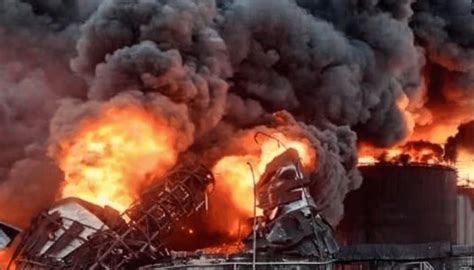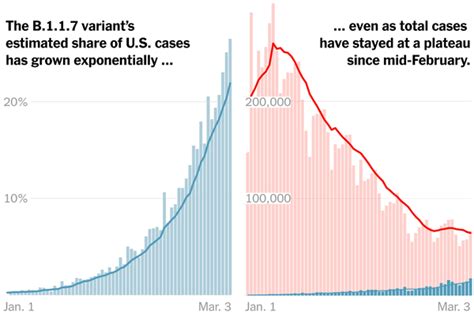
CNN has severed ties with senior international correspondent Sara Sidner, months after the network settled a costly defamation lawsuit related to her reporting. The departure, characterized as a mutual decision, follows CNN’s settlement with Kentucky businessman Michael Todd, who alleged Sidner falsely linked him to a fraudulent investment scheme in a 2019 broadcast.
CNN confirmed Sidner’s departure in a statement, wishing her well in future endeavors and acknowledging her contributions to the network. Sidner, who had been with CNN for over two decades, has not yet publicly commented on the specific reasons for her exit. The settlement with Todd, estimated to be in the millions of dollars, reportedly played a significant role in the network’s decision. The lawsuit stemmed from Sidner’s report on a Ponzi scheme orchestrated by Christopher Parris, where she mentioned Todd’s name in connection with the fraudulent activities. While Sidner’s report accurately stated that Todd was suing Parris, it also implied, according to the lawsuit, that Todd was complicit in the scheme, which he vehemently denied. Todd maintained that he was also a victim of Parris’ fraud.
The legal battle and subsequent settlement have put CNN under scrutiny, raising questions about its vetting process and editorial oversight. The case highlights the potential risks news organizations face when reporting on complex financial crimes, particularly concerning the accuracy and fairness of linking individuals to such schemes. The incident underscores the critical importance of rigorous fact-checking and careful wording to avoid defamation claims.
The Lawsuit and Settlement
The defamation lawsuit was filed by Michael Todd in 2019 following CNN’s broadcast of a report by Sara Sidner detailing a Ponzi scheme allegedly run by Christopher Parris. Sidner’s report focused on the financial crimes perpetrated by Parris, who reportedly defrauded numerous investors out of millions of dollars. During the broadcast, Sidner mentioned Todd in connection to the scheme, stating that Todd was suing Parris. However, the lawsuit argued that the way Sidner presented the information suggested Todd was involved in or benefited from the fraudulent activities, rather than being a victim himself.
Todd’s lawsuit specifically claimed that Sidner and CNN falsely portrayed him as being complicit in the Ponzi scheme. According to court documents, Todd asserted that he had also been defrauded by Parris and was seeking legal recourse to recover his losses. He argued that the broadcast damaged his reputation and caused significant financial harm. The suit detailed how the implication of involvement in the fraudulent scheme led to a loss of business opportunities and personal distress.
CNN initially defended the report, arguing that Sidner’s statements were factual and did not imply Todd’s involvement in the Ponzi scheme. The network contended that the report accurately reflected the legal proceedings between Todd and Parris and that there was no malicious intent or negligence in its broadcast. However, as the lawsuit progressed, it became evident that the case presented a substantial legal risk for CNN.
The decision to settle the lawsuit reflects a strategic move by CNN to mitigate potential damages and avoid a potentially lengthy and costly trial. Legal experts suggest that the network likely assessed the evidence and determined that there was a considerable risk of a jury siding with Todd. Defamation cases are notoriously difficult to win, particularly for public figures, who must prove actual malice – meaning the news organization knew the information was false or acted with reckless disregard for the truth. However, private individuals like Todd have a lower burden of proof, only needing to show that the statements were false and caused harm.
The financial terms of the settlement remain confidential, but sources familiar with the matter suggest that CNN paid Todd a significant sum, possibly in the millions of dollars, to resolve the lawsuit. The settlement included a non-disclosure agreement, preventing both parties from publicly discussing the details of the agreement. While the exact amount remains undisclosed, the settlement’s magnitude indicates the seriousness with which CNN treated the lawsuit and the potential damage it could have inflicted on the network’s reputation.
Sara Sidner’s Tenure at CNN
Sara Sidner joined CNN in 2004 and quickly rose through the ranks to become a prominent international correspondent. During her tenure, she covered a wide range of significant global events, including wars, natural disasters, and political upheavals. Sidner’s reporting took her to numerous countries, where she provided on-the-ground coverage of major news stories.
Sidner reported extensively from the Middle East, covering conflicts in Iraq, Afghanistan, and Lebanon. She also covered the Arab Spring uprisings, providing firsthand accounts of the pro-democracy movements that swept across North Africa and the Middle East. Her reporting on these events earned her recognition for her courage, dedication, and insightful analysis.
In addition to her coverage of international conflicts, Sidner also reported on major natural disasters, including the devastating earthquake in Haiti in 2010 and the tsunami in Japan in 2011. Her reporting on these events highlighted the human toll of these disasters and the challenges faced by affected communities. She often focused on the stories of ordinary people caught up in extraordinary circumstances, bringing a personal and empathetic perspective to her reporting.
Throughout her career at CNN, Sidner earned several awards and accolades for her journalistic work. She was recognized for her contributions to CNN’s coverage of major news events, including the network’s Peabody Award-winning coverage of the Arab Spring. Her work was also honored by the Overseas Press Club and the National Association of Black Journalists.
Sidner’s departure from CNN marks the end of a significant chapter in her career. While the circumstances surrounding her departure are linked to the defamation lawsuit, her contributions to CNN’s international coverage over the past two decades have been substantial. Her reporting has informed and educated audiences around the world, and she has been a respected voice in the field of journalism.
CNN’s Response and Future Steps
CNN’s decision to part ways with Sara Sidner reflects a broader effort by the network to address issues of editorial oversight and risk management. The defamation lawsuit highlighted potential vulnerabilities in CNN’s vetting process and the need for stricter controls on the accuracy and fairness of its reporting. In the aftermath of the settlement, CNN has reportedly undertaken a review of its editorial procedures and implemented measures to prevent similar incidents from occurring in the future.
The network is said to be focusing on enhancing its fact-checking processes and providing additional training to its journalists on libel law and ethical reporting. These measures are aimed at ensuring that CNN’s reporting meets the highest standards of accuracy and fairness. CNN is also likely to be more cautious in its reporting on complex financial crimes, taking extra precautions to avoid any implications of guilt or involvement without solid evidence.
CNN’s response to the lawsuit also reflects the increasing pressure on news organizations to balance the need for timely and accurate reporting with the potential legal and financial risks. In an era of rapid-fire news cycles and social media amplification, news organizations face the challenge of verifying information quickly and accurately. The CNN case underscores the importance of investing in robust fact-checking resources and providing journalists with the training and support they need to navigate these challenges.
The departure of Sara Sidner also raises questions about CNN’s future direction and its commitment to international reporting. Sidner was a key figure in CNN’s international coverage, and her departure leaves a void that the network will need to fill. CNN is likely to be looking for new talent to bolster its international reporting team and maintain its presence on the global stage.
Impact on Media Landscape
The CNN case has broader implications for the media landscape, particularly in the context of defamation law and journalistic ethics. The case serves as a reminder of the potential legal and financial risks associated with reporting on complex and sensitive topics. It underscores the importance of accuracy, fairness, and thorough fact-checking in all aspects of journalism.
The case also highlights the challenges faced by news organizations in the digital age, where information spreads rapidly and misinformation can quickly gain traction. News organizations must be vigilant in combating the spread of false information and ensuring that their reporting is accurate and reliable. This requires investing in robust fact-checking resources and implementing strong editorial controls.
The CNN case may also prompt other news organizations to review their own editorial procedures and risk management strategies. News organizations are likely to be more cautious in their reporting on potentially defamatory subjects and to take extra precautions to avoid any legal challenges. This could lead to a more cautious and conservative approach to journalism, with news organizations being less willing to take risks in their reporting.
However, the case also underscores the importance of a free and independent press. News organizations play a critical role in holding powerful individuals and institutions accountable, and they must be able to report on important issues without fear of legal reprisal. The CNN case serves as a reminder of the need to protect press freedom and to ensure that journalists can continue to report on matters of public interest.
Frequently Asked Questions (FAQ)
Q1: What was the primary reason for Sara Sidner’s departure from CNN?
A1: Sara Sidner’s departure from CNN is attributed to a mutual decision following the network’s settlement of a costly defamation lawsuit. The lawsuit stemmed from Sidner’s reporting on a Ponzi scheme, where she mentioned Kentucky businessman Michael Todd, leading to allegations that the report falsely linked Todd to the fraudulent activities.
Q2: What was the nature of the defamation lawsuit against CNN?
A2: The defamation lawsuit was filed by Michael Todd, who claimed that Sara Sidner’s report on a Ponzi scheme implied he was complicit in the fraudulent activities. Todd asserted that he was also a victim of the scheme and that the report damaged his reputation and caused financial harm.
Q3: How did CNN respond to the defamation lawsuit?
A3: CNN initially defended the report, arguing that Sidner’s statements were factual and did not imply Todd’s involvement in the Ponzi scheme. However, the network later decided to settle the lawsuit to mitigate potential damages and avoid a potentially lengthy and costly trial.
Q4: What is the estimated cost of the settlement CNN reached with Michael Todd?
A4: The financial terms of the settlement remain confidential, but sources familiar with the matter suggest that CNN paid Todd a significant sum, possibly in the millions of dollars, to resolve the lawsuit.
Q5: What impact might this case have on other media organizations?
A5: The CNN case may prompt other news organizations to review their own editorial procedures and risk management strategies. News organizations are likely to be more cautious in their reporting on potentially defamatory subjects and to take extra precautions to avoid any legal challenges. This could lead to a more cautious and conservative approach to journalism, with news organizations being less willing to take risks in their reporting. However, the case also underscores the importance of a free and independent press.
Deep Dive into the Legal and Ethical Dimensions
The CNN-Sidner case provides a valuable lens through which to examine the complexities of defamation law and its intersection with journalistic ethics. Defamation, generally defined as a false statement presented as fact that harms another person’s reputation, presents a significant challenge for news organizations. The burden of proof in defamation cases varies depending on whether the plaintiff is a public figure or a private individual. Public figures, such as celebrities or politicians, must prove “actual malice,” meaning that the news organization knew the statement was false or acted with reckless disregard for the truth. This high standard is intended to protect the freedom of the press and allow for robust public discourse. Private individuals, on the other hand, have a lower burden of proof, only needing to show that the statement was false and caused harm.
In the case of Michael Todd, as a private individual, he had to demonstrate that Sidner’s report contained false statements that damaged his reputation. The key issue was whether the report, by mentioning Todd’s name in connection with the Ponzi scheme, implied his involvement or complicity in the fraudulent activities. Even if the report accurately stated that Todd was suing Parris, the way the information was presented could have created a false impression in the minds of viewers. This highlights the importance of careful wording and context in news reporting.
From an ethical perspective, the case raises questions about the journalist’s duty to be fair and accurate. Journalists have a responsibility to verify information and to present it in a balanced and unbiased manner. This includes providing sufficient context and avoiding the use of language that could mislead or create false impressions. In the CNN case, it is possible that Sidner’s report, while technically accurate in its individual statements, may have lacked sufficient context to prevent viewers from drawing inaccurate conclusions about Todd’s involvement in the Ponzi scheme.
The decision to settle the lawsuit reflects a pragmatic assessment by CNN of the potential legal and financial risks. Defamation cases can be expensive and time-consuming, and even if the news organization ultimately prevails, the cost of defending the lawsuit can be substantial. Moreover, a defamation trial can be damaging to the news organization’s reputation, particularly if the case involves allegations of inaccurate or biased reporting.
The Role of Editorial Oversight and Fact-Checking
The CNN-Sidner case underscores the critical role of editorial oversight and fact-checking in preventing defamation claims. News organizations must have robust systems in place to ensure that their reporting is accurate, fair, and balanced. This includes multiple layers of review, from the reporter to the editor to the legal department.
Fact-checking is an essential component of editorial oversight. News organizations must invest in resources and training to ensure that their reporters have the tools and skills to verify information accurately. This includes checking sources, verifying facts, and consulting with experts when necessary. In the context of reporting on financial crimes, fact-checking is particularly important, as these cases often involve complex and technical information.
Editorial oversight also involves ensuring that the reporting is presented in a fair and balanced manner. This includes providing sufficient context, avoiding the use of inflammatory language, and giving all parties an opportunity to respond to allegations. In the CNN case, it is possible that the report could have been improved by providing more context about Todd’s role as a victim of the Ponzi scheme and giving him an opportunity to respond to the allegations.
The Evolving Media Landscape and Defamation Risks
The rise of social media and the 24/7 news cycle have created new challenges for news organizations in managing defamation risks. Information now spreads rapidly and widely, making it more difficult to control the narrative and prevent the spread of false information. Social media also provides a platform for individuals to express their opinions and criticisms of news organizations, which can increase the pressure on journalists to be accurate and fair.
In this evolving media landscape, news organizations must be more vigilant than ever in managing defamation risks. This includes investing in robust fact-checking resources, providing ongoing training to journalists on libel law and ethical reporting, and developing effective crisis communication plans to respond to potential defamation claims.
News organizations must also be aware of the potential for social media to amplify the impact of defamatory statements. A false statement that is published on social media can quickly reach a large audience and cause significant damage to the reputation of the person being defamed. News organizations must be prepared to take swift action to correct false information that is being spread on social media and to defend themselves against potential defamation claims.
The Future of Journalism and Defamation Law
The CNN-Sidner case is a reminder of the ongoing challenges that news organizations face in balancing the need for timely and accurate reporting with the potential legal and financial risks. As the media landscape continues to evolve, news organizations must adapt their practices and procedures to meet these challenges.
One potential development is the increased use of technology to assist in fact-checking and editorial oversight. Artificial intelligence (AI) and machine learning (ML) can be used to automate the process of verifying information and identifying potential errors. These technologies can also be used to analyze the language used in news reports to identify potential bias or inflammatory language.
Another potential development is the increased emphasis on media literacy and critical thinking skills. By educating the public about how to evaluate news sources and identify misinformation, news organizations can help to create a more informed and discerning audience. This can reduce the impact of defamatory statements and help to protect the reputation of individuals and institutions.
Ultimately, the future of journalism and defamation law will depend on the ability of news organizations to adapt to the changing media landscape and to uphold the highest standards of accuracy, fairness, and ethical reporting. This requires a commitment to investing in robust fact-checking resources, providing ongoing training to journalists, and developing effective crisis communication plans. By taking these steps, news organizations can minimize their exposure to defamation risks and continue to play a vital role in informing the public and holding powerful individuals and institutions accountable.
Expanding on Sidner’s Career and Legacy
Beyond the circumstances of her departure, it’s crucial to acknowledge Sara Sidner’s extensive career and the impact she had as a journalist. Her two decades at CNN saw her covering some of the most significant global events, bringing crucial perspectives and often overlooked stories to a worldwide audience. From conflict zones to natural disasters, Sidner consistently demonstrated courage, empathy, and a commitment to journalistic integrity.
Her reporting from the front lines of the Iraq and Afghanistan wars provided viewers with a visceral understanding of the human cost of conflict. She didn’t just report the facts; she told the stories of the people affected, giving a voice to those who often went unheard. This human-centered approach was a hallmark of her reporting style and earned her the respect of her colleagues and the appreciation of audiences around the world.
Sidner’s coverage of the Arab Spring uprisings was particularly impactful. She was on the ground in Tunisia, Egypt, and Libya, witnessing firsthand the momentous events that reshaped the political landscape of the Middle East. Her reporting provided valuable insights into the motivations and aspirations of the pro-democracy movements, helping viewers understand the complexities of these transformative events.
In addition to her coverage of international conflicts and political upheavals, Sidner also reported extensively on major natural disasters, including the Haiti earthquake and the Japanese tsunami. Her reporting on these events highlighted the devastating impact on affected communities and the challenges faced by survivors. She often focused on the stories of individuals struggling to rebuild their lives in the aftermath of these disasters, bringing a human dimension to the news.
Sidner’s departure from CNN represents a loss for the network and for the field of journalism. Her experience, expertise, and commitment to ethical reporting will be missed. While the circumstances surrounding her departure are unfortunate, they should not overshadow her many accomplishments and contributions to CNN and to the broader world of journalism.
Her legacy as a journalist will be defined by her courage, her empathy, and her dedication to telling the stories of those who often go unheard. She set a high standard for journalistic excellence and inspired countless others to pursue careers in the field. Even as she moves on to new endeavors, her impact on journalism will continue to be felt for many years to come.
The Broader Context of Media Liability
The CNN-Sidner case is not an isolated incident. It is part of a broader trend of increasing legal scrutiny of news organizations and a growing awareness of the potential for media liability. In recent years, there have been numerous high-profile defamation lawsuits filed against news organizations, reflecting a growing willingness of individuals and institutions to challenge what they perceive as inaccurate or unfair reporting.
This trend is driven by several factors, including the rise of social media, the increasing polarization of society, and the growing skepticism of the mainstream media. Social media has made it easier for individuals to disseminate information and to criticize news organizations. The increasing polarization of society has led to a greater willingness to believe negative information about political opponents and ideological adversaries. And the growing skepticism of the mainstream media has made it more difficult for news organizations to maintain their credibility and trustworthiness.
In this challenging environment, news organizations must be more vigilant than ever in managing their legal risks. This includes investing in robust fact-checking resources, providing ongoing training to journalists on libel law and ethical reporting, and developing effective crisis communication plans to respond to potential legal challenges.
News organizations must also be aware of the potential for online harassment and abuse. Journalists are increasingly targeted by online trolls and harassers, who often use social media to spread false information, make threats, and engage in other forms of abusive behavior. News organizations must take steps to protect their journalists from online harassment and abuse, including providing training on how to manage online threats and offering support to journalists who are targeted by online harassment.
The legal and ethical challenges facing news organizations are likely to continue to grow in the years ahead. As the media landscape becomes more complex and competitive, news organizations must adapt their practices and procedures to meet these challenges and to maintain their credibility and trustworthiness. This requires a commitment to upholding the highest standards of accuracy, fairness, and ethical reporting.









